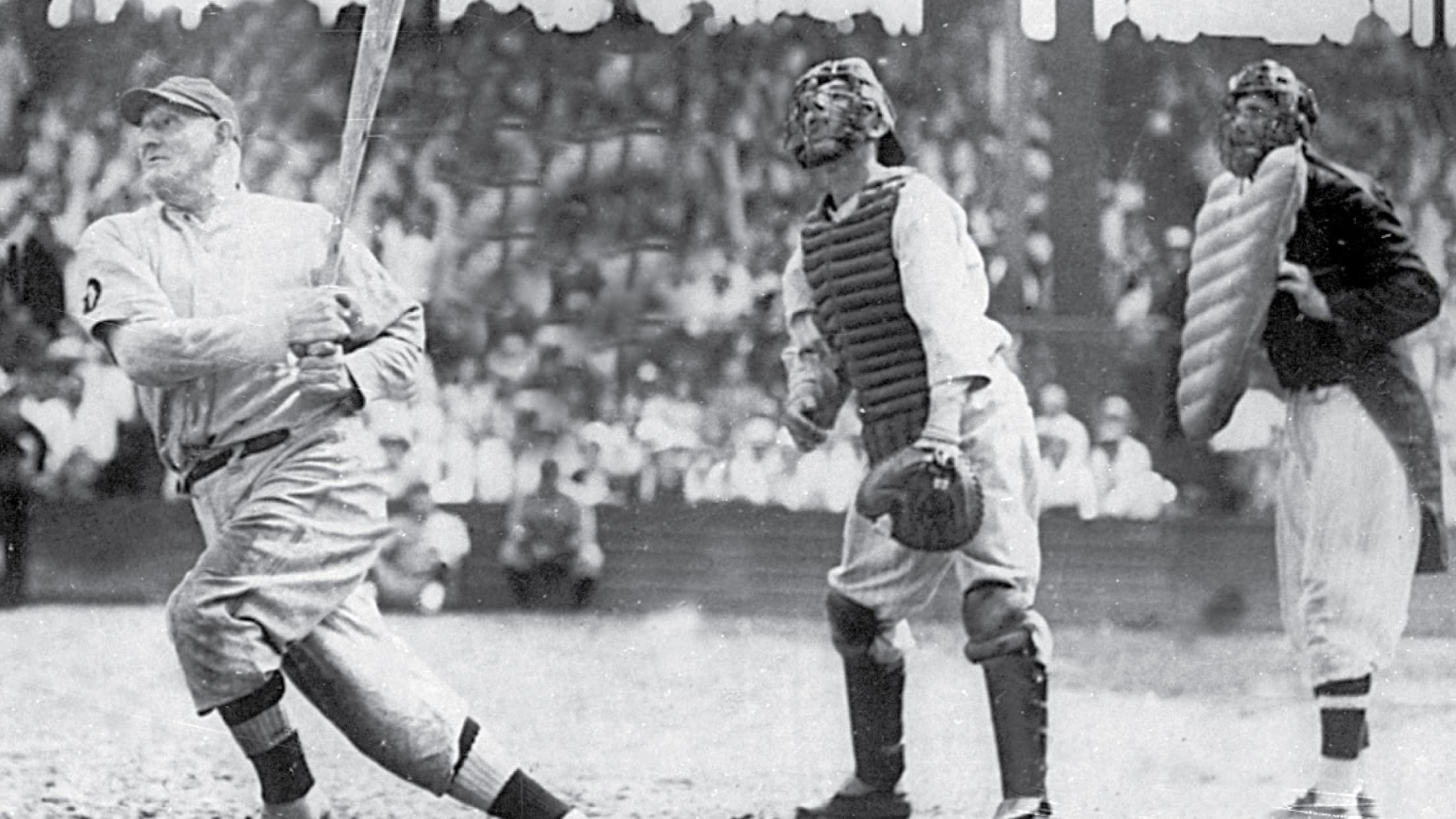HONUS WAGNER
Just Throw the Ball... and Duck!
By Abby MendelsonHe came up a very long time ago, when bats were thicker, gloves smaller, and the ball thudded and was called dead.
He retired long, long ago and is virtually erased from living memory.
Children coming into PNC Park's home plate entrance wonder who he is, the great stone man, 18 feet high, bat held aloft, eyes following another live drive.

One of the elite group of five players first elected to baseball's Hall of Fame in 1936, from 1900-17 he led the powerhouse Pirates to 14 consecutive first-division finishes. A quiet man, 5-11 and 200 pounds, with bowed legs and broad shoulders, a barrel chest, long arms, and powerful hands, he was a player of enormous natural gifts. One of five sons of a Bavarian coal miner, he was the consummate natural, with range, power, and speed in abundance.
He was John Peter Wagner, aka Honus, aka Hans, aka The Flying Dutchman, a deadly hitter, sure-handed fielder, and one of the best base stealers who ever lacked on spikes.
Consistently rated as the best overall shortstop in baseball history, Wagner played for 21 seasons (1897-17), hit .300 or above 17 straight years, and did not know what a .200 average was until he was 40.
In the era when fields were grass and players rode the streetcar to work, he won eight batting titles -- still unmatched in the National League -- and led in RBIs five times, stolen bases five times, doubles eight times, and triples three times.
When his career was over, after nearly 2,800 games and 10,450 at-bats, he had 3,430 hits, a record which stood until Donora's Stan Musial broke it in 1962, and a .328 lifetime average. His 651 doubles, 252 triples, and 722 stolen bases simply shine.
To this day, Wagner remains in the top 10 in 11 Pirate categories.
Born in 1874 in Carnegie, Wagner followed his family into the mines. Yet the Wagner boys were ballplayers, too, and soon young Hans was a minor-leaguer in Ohio. By '97, Wagner was in the majors, for the Louisville Colonels.
In 1900, when the National League slimmed down from 12 to eight teams, Wagner came to Pittsburgh with owner Barney Dreyfuss and 13 other Colonels.
The merger proved the right tonic for the flaccid Pirates.
The Bucs, who had finished seventh in '99, won four National League pennants, played in the first World Series, and won another.
In '00, Wagner hit .381 as the Bucs steamed into second place. In '01, Wagner hitting .351 and stealing 48 bases, the Pirates took their first-ever flag; the next year, '02, the club won 103 games, Wagner leading the league in virtually every category.
How to pitch to the fierce line-drive hitter?
"Just throw the ball," growled John McGraw, legendary Giants' skipper, "and duck!"
Although the Dutchman couldn't win baseball's first World Series in '03 (he hit but .222), his bat, feet, and fielding -- and new Forbes Field -- helped the club secure 110 wins in '09 -- and their first world title, against Ty Cobb's Tigers. Wagner hit .333 and stole six bases in that series, setting a record that stood until 1967.
In 1911, Wagner won his last batting title, at age 37.
Retiring after the 1917 season, Wagner did what many of the ballplayers of his time did, hacked around in semi-pro ball, worked a political job, ran a sporting-goods store, and coached.
In 1933, nearly 60, Wagner returned to the Pirates for a 19-season stint as their all-time most beloved coach and goodwill ambassador.
After his death in 1955 his number 33 was retired.
How good was Honus Wagner?
Good enough to be rated by many as one of the game's greatest players.
And good enough to stand guard at PNC Park in Pittsburgh a century after coming to the majors.